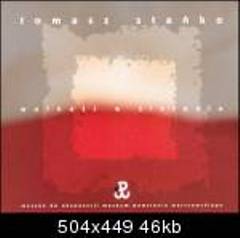Tomasz Stanko - Wolnosc w Sierpniu (2005)
Tomasz Stanko - Wolność w Sierpniu (2005)

:: Wolnosc W Sierpniu (Freedom In August) :: Piesn Nadziei (Hope Song) :: Ballada Powstancza (Rising Ballad) :: Piesn Ruin (Crash Song) :: Dee :: Piesn Kanalow (Song Of The Sewers) Personnel: Tomasz Stanko - trumpet, composer Marcin Wasilewski - piano Janusz Skowron - synthesizer Slawomir Kurkiewicz - double-bass Michal Miskiewicz - drums Antymos Apostolis - percussion Tomasz Szukalski - tenor saxophone Wojiech Karolak - orchestral arrangements String Section of Polish Radio Orchestra Marcin Nalecz Niesiolowski - conductor
Trumpeter Tomasz Stanko has found increasing international exposure in recent years due to a string of fine ECM recordings, including Leosia (1997), Litania (1997) and Suspended Night (2004). But while his reappearance on the international scene is relatively recent, he has a perhaps not-so-surprisingly considerable discography released only in his native Poland, which ranges from Bosonossa (GOWI, 1993)—with his nascent quartet featuring Bobo Stenson, Anders Jormin, and Tony Oxley—to works for theatre and film. Regardless of context, Stanko's distinctive raspy yet warm tone and melancholy lyricism provide a fundamental link, whatever the style or application.
Wolnosc w Sierpniu (Freedom in August) is an independent Polish release written for the Warsaw Rising Museum, which opened in August, 2004 to commemorate the 60th anniversary of the fight for Warsaw. Stanko was commissioned to write a suite of music for use by the museum, working here with an augmented version of his current quartet with pianist Marcin Wasilewski, bassist Slawomir Kurkiewicz, and drummer Michal MiÅkiewicz. Stanko's characteristic openness imbues these six tracks totalling just under half an hour of music. However, the addition of the Polish Radio Orchestra's string section, as well as synthesizer, percussion, and saxophone—the latter played by Tomasz Szukalski, a Stanko collaborator since the 1970s—creates a more broadly-textured work, a stronger blend of Stanko the composer with Stanko the improviser.
And yet, while songs like the title track clearly have more detailed arrangements, there's an airiness and a sense of freedom that perfectly embodies the spirit in which these pieces were composed. As Stanko has aged, like Italian trumpeter Enrico Rava, he has found a more centrist way of retaining the freedom that's imbued his work since he first emerged in the 1960s with Polish composer Krystof Komeda and Alexander von Schlippenbach's Globe Unity Orchestra. Rather than confining, Stanko's arrangements paradoxically seem to liberate him to the point where defined melodies and improvisations become almost one and the same.
While the leader's is the primary voice, Wasilewski and Szukalski both have their own opportunities to explore the potential of Stanko's lush and accessible compositions. On his own records, as well as Manu Katche's recent release, Neighbourhood, Wasilweski is proving to be not only a highly adaptable player, but one whose elegant language is evolving in leaps and bounds.
The title track, though at a bright tempo, retains a certain darkness in texture, while "Hope Song" is more ethereal, Stanko's voice rising above the wash of synthesizers and strings. "Rising Ballad" begins with Stanko's plaintive voice alone, the mournful tone and soft accompaniment evoking the mixed emotions of freedom gained and lives lost. "Crash Song," on the other hand, may have an equally soft backdrop, but Stanko's jarring lines create a more vivid sense of discord. ---John Kelman, allaboutjazz.com
download (mp3 @320 kbs):
yandex 4shared mediafire cloudmailru
Last Updated (Monday, 30 July 2018 18:37)
